Hullabaloo readers: Before commenting ‘How dare you?,’ take a moment to reflect
November 20, 2019
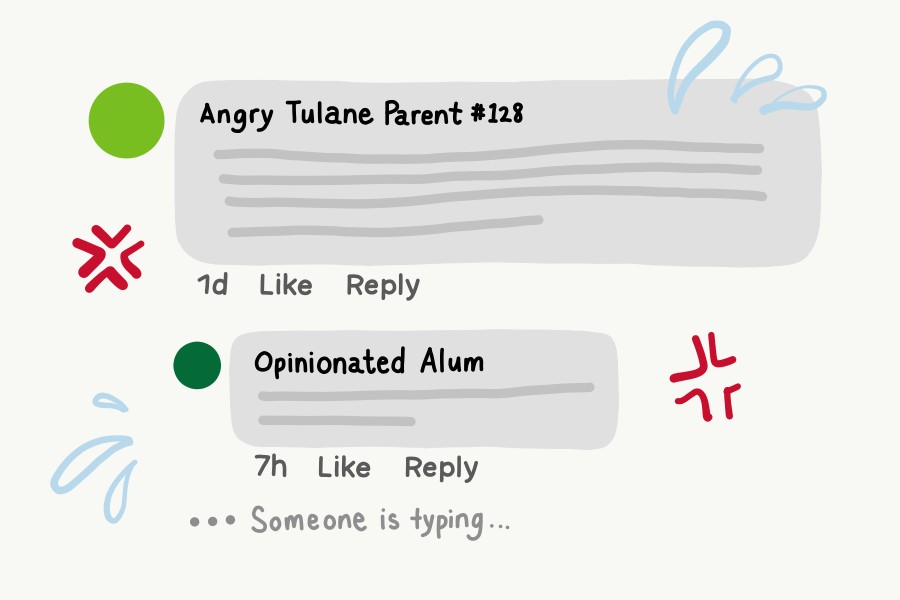
For Hullabaloo readers, it’s been hard to miss the ongoing comment wars on recent opinion pieces. Unfortunately, many of the comments echo similar sentiments to other “controversial” content in the Hullabaloo: How dare you, a student newspaper, publish this? What gives you the right to cover this topic?
Despite the Israeli-Palestinean conflict being a relevant and widely debated topic on campus, recent comments from parents and alumni have criticized the newspaper for publishing opinion pieces that express pro-Palestine viewpoints.
This is another example in a long pattern of backlash from alumni and parents against The Hullabaloo for perceived changes in its methods of student journalism and the content it publishes, particularly when that content goes against mainstream viewpoints at Tulane.
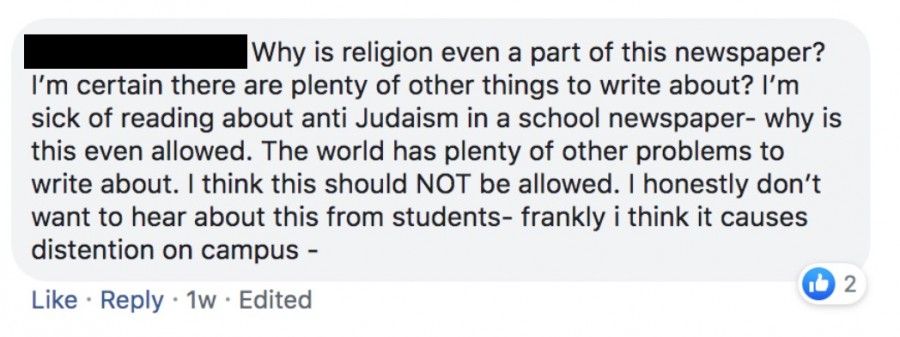
After News articles ran last year about students who use SeekingArrangement as well as students talking about their cocaine use, comments piled on suggesting that the coverage was inappropriate for a student newspaper. When Intersections published essays about the experiences of students of colors on Tulane’s campus, there was immediate and obvious vitriol towards the authors for expressing their perspectives and the newspaper for being the platform for them to do so.
All newspapers should be open to criticism, but this critique is particularly baffling and hypocritical. In the same breath that they accuse student journalists of being “too PC these days,” alumni and parents ask student journalists to self-censor and silence those whose voices they disagree with or whose opinions they don’t want to hear.
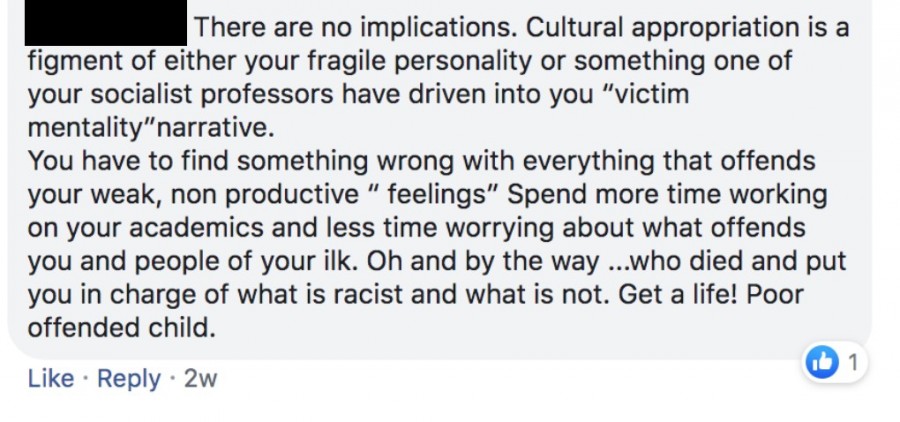
The Hullabaloo is an independent, student-run organization, which means it secures its own funding, and the student-run board — not Tulane — has final say when it comes to editorial decisions. This gives The Hullabaloo the liberty to reflect the interests and outlooks of the students on this campus, not the administration or donors or alumni.
It also gives The Hullabaloo the freedom to experiment with journalistic approaches and not be constrained by the traditional tenets of a genre of writing that is currently in the process of a massive overhaul. Often, this translates to covering topics perceived as “controversial,” because they interest students and affect their lives, even if that isn’t immediately obvious to those who aren’t on campus.
There is a wide range of reasons for the backlash to these topics, from over-the-top parental concern to the more common shock and outrage at shifting cultural norms. This is evident by the intensity of attacks against many Intersections pieces as well as op-eds, like the recent Pro-Palestine ones, that go against the grain of the Tulane status quo.

The Hullabaloo has been accused of being “disturbing,” “dangerous,” politically biased and spreading “false narratives” for being a platform where students voices can be heard, even if they go against what alumni and parents think. This is a reflection of changes in The Hullabaloo and a commitment to student journalism that should be lauded.
Criticism of changes in students’ approaches to journalism by alumni are not remotely limited to Tulane. The Daily Northwestern recently came under fire for a board editorial they had issued apologizing for their method of coverage for student protests of a Jeff Sessions speech on campus.
Students criticized the paper primarily for releasing online photos and names that identified protesters, including those in altercations with police, potentially exposing protestors to university disciplinary action. Also mentioned in the editorial was the method through which sources were targeted for comment after the protests.
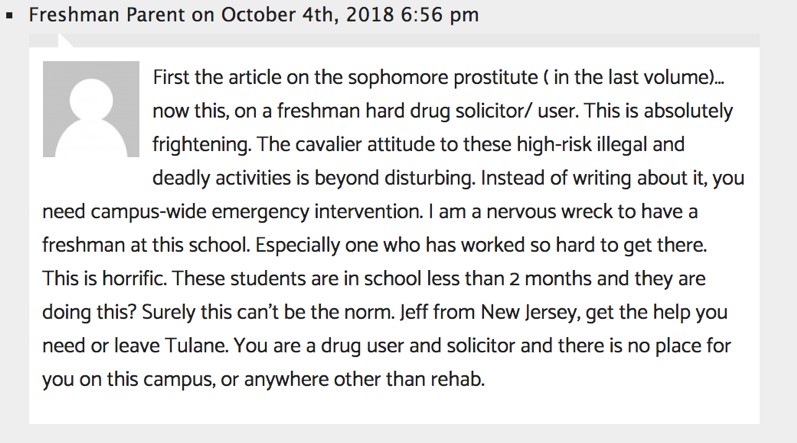
The editorial went viral, with many professional journalists and Northwestern alumni attacking the board of the paper for what they perceived to be “snowflake” culture and groveling to student activists.
Again, this is more of a disconnect between former and current students about what it means to be responsible and responsive to your community, a line that students and professional journalists are grappling with across the industry. Student journalism has a unique opportunity to practice empathy and address exploitation in ways that traditional journalism hasn’t done adequately.


Criticism in good faith is always useful — and we get that parents are nervous! If an article alarms you, feel free to use it as your next conversation starter with your student — however, alumni, parents and non-student readers should consider that campus culture is always changing and that The Hullabaloo might now be giving voice to students whose voices would have been institutionally silenced in the past.
So please keep reading and supporting student journalism, but also please bear in mind that The Hullabaloo’s primary responsibility is to Tulane students, whose interests, opinions and values may not always align with yours.


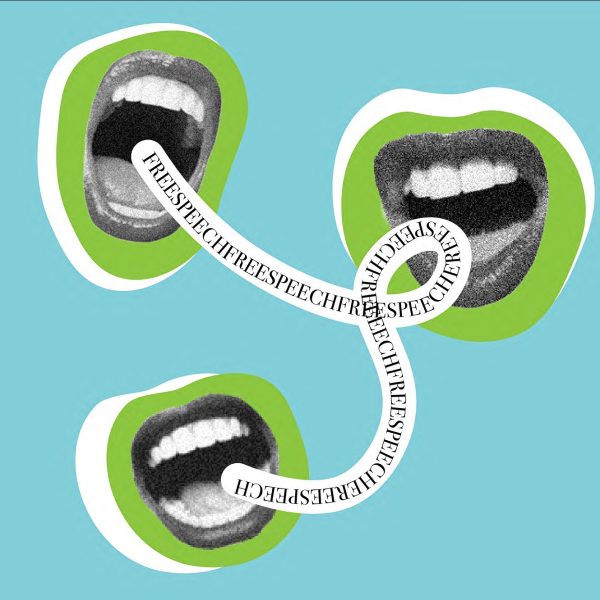
















Iris Delahoussaye • Nov 30, 2019 at 7:42 pm
I am super appreciative that you did this. This needs to be a universal thing. Because otherwise it can silence student-run papers from sharing stories they believe to be important. Keep up the good work!
Current Tulane Student • Nov 27, 2019 at 4:32 pm
Great and much needed article! There are many subcultures of Tulane which light needs to be shed on. Don’t shoot the messenger…
Joseph Romulus • Nov 26, 2019 at 5:22 pm
“grown ass adults” followed by “When they go low, you go high.”
You can’t make this stuff up!
Dana Mattson • Nov 23, 2019 at 7:56 am
Cullen Fagan,
Useful information, I find myself appalled at some of the comments grown ass adults publish.
Be bold, be audacious.
Haters are going to hate.
When they go low, you go high.
Best,
dkm